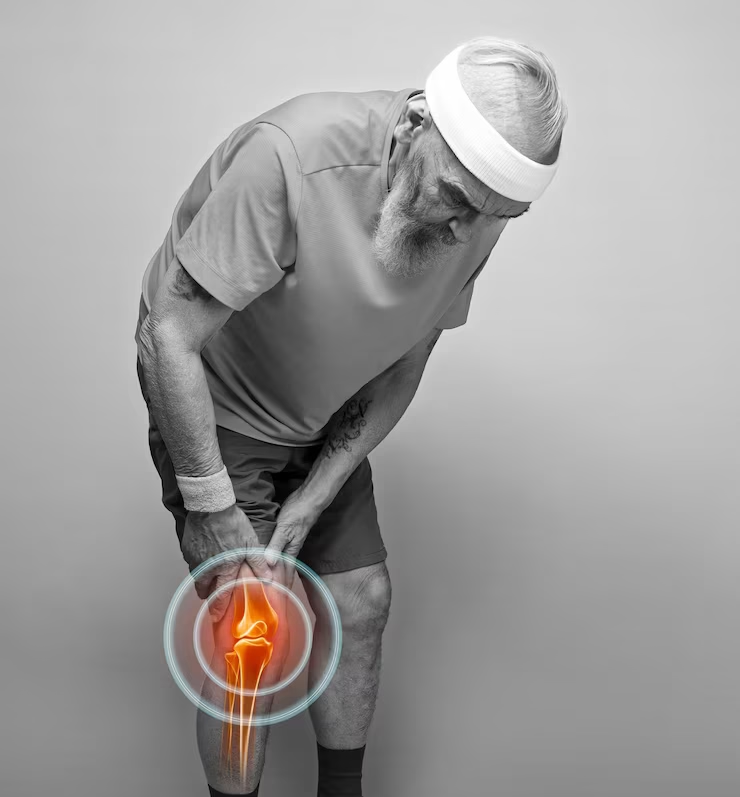Arthritis
Arthritis's Impact
Arthritis refers to a group of inflammatory joint diseases characterized by pain, stiffness, and swelling. This comprehensive overview explores various types of arthritis, including osteoarthritis, rheumatoid arthritis, and psoriatic arthritis, along with their causes, risk factors, symptoms, diagnosis, and management strategies. Understanding arthritis is vital for individuals affected by the condition and healthcare professionals, as it enables early intervention, personalized treatment plans, and lifestyle modifications to alleviate symptoms, preserve joint function, and improve quality of life.


Challenges Facing Healthcare Providers in Arthritis Management
Advancing Arthritis Care Solutions with SmartCare360°Care360°?
Early Detection and Arthritis Education
Early detection of arthritis through routine screening and awareness can significantly improve patient outcomes. Educating the public and healthcare professionals about common arthritis symptoms—such as joint pain, stiffness, and swelling—can promote timely diagnosis and reduce long-term joint damage. Raising awareness about the different types of arthritis, including osteoarthritis, rheumatoid arthritis, and psoriatic arthritis, helps individuals seek appropriate care earlier.
Access to Specialized Arthritis Care
Access to rheumatologists and specialized arthritis clinics is essential for accurate diagnosis and effective disease management. Providing telehealth services and mobile care programs can bridge gaps in access for rural and underserved communities. Timely intervention and personalized treatment plans from arthritis specialists can improve mobility and quality of life for patients.
Coordinated Arthritis Care
Integrated care coordination that connects primary care providers, rheumatologists, physiotherapists, occupational therapists, and orthopedic specialists can greatly enhance arthritis treatment outcomes. A team-based approach ensures that all aspects of a patient’s condition—from inflammation control to joint function are addressed through a unified care strategy.
Innovative Treatments and Technologies for Arthritis
Investing in advanced arthritis treatments, including biologic medications, DMARDs, regenerative medicine, and minimally invasive joint procedures, can improve pain management and slow disease progression. Emerging technologies like ultrasound-guided joint injections and digital health monitoring tools help track treatment efficacy and patient progress more effectively.
Public Health Strategies to Prevent Arthritis
Public health campaigns that promote regular exercise, healthy eating, and weight management can lower the risk of developing arthritis or reduce symptom severity. Community programs and digital resources aimed at reducing sedentary behavior, smoking, and poor diet can help prevent arthritis-related disability and improve population-wide joint health.
IMPROVE YOUR OUTCOMES WITH SMARTCARE360°
SmartCare360 is an online platform that partners with your physician to make world-class healthcare available on-demand, virtually or in person. By customizing our many resources to your specific conditions and needs, we simplify the process of managing your chronic diseases, accessing a doctor whenever you need, and being proactive about preventative healthcare.
Benefits Of SMARTCARE360°
SmartCare360 makes healthcare easier to access, more personalized, and more affordable for every patient. Here are the main benefits of our virtual healthcare platform for patients with all kinds of healthcare needs.
- Managing Ongoing Health Conditions
- Cutting Medical Expenses
- Checking Health Risks
- Care Made Just for You
- Fitness and Healthy Eating Plan
- Fun and Easy Wellness
- Health Info Anytime

Key Features Of SMARTCARE360°
SmartCare360° delivers a modern approach to anxiety care through digital tools, remote check-ins, smart therapy reminders, and centralized mental health records. This integrated system supports early symptom detection, improves treatment adherence, and simplifies care coordination—leading to better mental wellness and long-term results.
AI-Powered Early Diagnosis
SmartCare360° leverages artificial intelligence to support early and accurate health condition detection. By analyzing clinical data and diagnostic imaging, it helps identify potential issues before noticeable symptoms appear—enabling timely intervention and improved patient outcomes.
Real-Time Remote Monitoring
SmartCare360° offers continuous remote monitoring of patient health data, empowering providers to track condition changes in real time and make timely treatment adjustments—minimizing the need for frequent in-person visits.
Automated Medication Reminders
SmartCare360° includes intelligent reminders for medications and appointments, supporting treatment adherence and helping patients stay consistent with their care plans—reducing avoidable complications.
Centralized Clinical Data Access
SmartCare360° provides a unified dashboard for accessing patient records, diagnostics, and care plans—all in one place. This streamlined view simplifies provider workflows and enables more personalized, efficient care delivery.
(FAQs) – Anxiety
Arthritis is a condition that causes inflammation and pain in one or more joints. The two most common types are osteoarthritis, which results from wear and tear of cartilage, and rheumatoid arthritis, an autoimmune disease that attacks joint tissue. Other types include psoriatic arthritis, gout, and juvenile arthritis.
Common early symptoms of arthritis include joint pain, stiffness, swelling, redness, and limited range of motion. Symptoms often worsen with inactivity or in the morning. Early detection can help slow disease progression and prevent joint damage.
Doctors diagnose arthritis using a combination of physical exams, blood tests (such as rheumatoid factor and CRP), and imaging tests like X-rays, MRIs, or ultrasounds. Accurate diagnosis is essential for selecting the right treatment plan.
Arthritis can be caused by age-related joint wear, autoimmune disorders, genetics, joint injuries, or infections. Lifestyle factors such as obesity, poor diet, and lack of physical activity can also contribute to arthritis risk.
Arthritis treatments vary by type but commonly include anti-inflammatory medications, DMARDs, biologics, physical therapy, exercise, and in severe cases, joint replacement surgery. A rheumatologist can develop a personalized treatment plan.
Yes, arthritis can affect people of all ages. Juvenile arthritis impacts children under 16, while young adults can develop rheumatoid arthritis, psoriatic arthritis, or reactive arthritis. Early treatment is crucial at any age.
See a doctor if you have persistent joint pain, swelling, or stiffness lasting more than a few days. Delaying diagnosis and treatment can lead to worsening symptoms and long-term joint damage.
While some types of arthritis can’t be prevented, you can lower your risk by maintaining a healthy weight, exercising regularly, eating a balanced diet, avoiding joint injuries, and quitting smoking. These habits help reduce joint stress and inflammation.
We invest up to $100,000 for every 500 patients with no operational or financial risk to the clinic
Discover The Future Of MedTech Now in Your Practice Without Footing The Bill
For Set Up and Operation…










